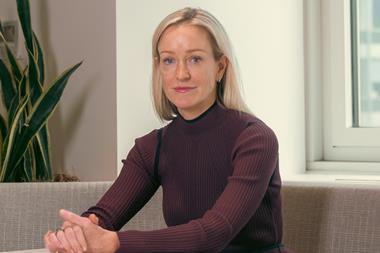Natural real assets manager SLM Partners has disclosed in a report that its land portfolio absorbed more carbon dioxide than the assets released.
The asset manager said its first Taskforce on Nature-related Financial Disclosures (TNFD)-aligned report and portfolio-wide carbon accounting revealed 100,000 tonnes CO2e sequestered in 2023 through regenerative management of land for cattle, crops and continuous cover forestry.
According to the white paper, Investing in Regenerative Agriculture: Reflections from the Past Decade, SLM Partners said it discovered that its regenerative farming practices were not only good for the environment, but can be also good for business – delivering an expected internal rate of return 1% to 3% higher than conventional farmland investing.
“Regenerative strategies are also poised to benefit from the expansion and development of carbon and nature markets that provide an additional lucrative upside,” it added.
SLM Partners said the report presents “quantitative impact metrics that investors can use to work towards their carbon and nature targets”, and marks the asset manager’s first step towards integrating the recommendations of TNFD.
Paul McMahon, managing partner at SLM Partners said: “The environmental, social and economic benefits of regenerative practices are clear. Farmland and timberland must be managed sustainably if it is to deliver sustainable returns to its workers and investors. For too long, short-termism has driven the degradation of land itself – its soils, its freshwater, its biodiversity – and the healthy ecosystems farmers and foresters rely on to operate land profitably for the long term.
“SLM Partners’ pioneering approach to regenerative land management – embracing ecological approaches such as organic farming and continuous cover forestry, supporting farmers through the transitional phase with long-term flexible leases, and providing training and expert guidance – helps secure value for operators and investors alike. It is time for landowners to wake up to the risk from degradation of their assets and embrace the upside presented by regenerative management.”
Alessia Lenders, head of impact at SLM Partners, said: “Built upon primary data directly sourced from farmers, foresters, and esteemed third-party experts such as biologists and soil specialists, the impact results in our latest report showcase the benefits of our investment strategy.

“Our impact reporting process continuously evolves to align with new market standards, most notably TNFD. By piloting the latest sector-specific guidance from TNFD on agriculture and forestry, we aim to offer investors a comprehensive and transparent understanding of both the positive aspects – opportunities and impact – and the potential risks and dependencies, ensuring informed decision-making.”
To read the latest IPE Real Assets magazine click here.


















